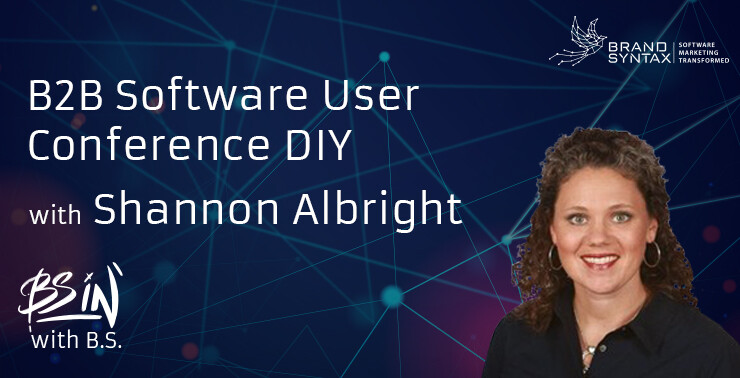While many businesses focus marketing goals and ROI calculations on short-term yields such as the number of leads, it is necessary to set a mixture of short-term, mid-term, and long-term goals. Marketing is not something that happens overnight and must be prioritized as a long-term strategy, which can be difficult when you’re not seeing results. You can’t treat it like sales with a pipeline and deals. You have to treat it like a 401k. Sure, you’ll see some immediate gains, but in reality, plan for your investment there to compound and grow over time (probably several years).
Still skeptical? Let’s look at the stats. The average B2B buyer only spends 10-30% of their buyer journey in the sales funnel. The rest of their journey is spent deciding what they need, whether to buy, and whether to talk to you about buying your software. For a typical B2B software sales cycle (lead creation to purchase/deal close), you spend 102 days qualifying/creating/closing a deal. If that’s, conservatively, only 20% of your buyer’s journey, your prospects spend at least a year before they are comfortable enough with the idea of buying your product to reach out to a salesperson.
Understanding the types of goals will help with the development of the best B2B software marketing strategy for your unique needs. One of the best pieces of advice when developing your marketing strategy is to keep your goals SMART, which is an acronym for Specific, Measurable, Achievable, Relevant, and Time-Based. This will ensure you set goals that set yourself and your business up for success.
Long-Term Marketing Goals
All businesses need to set long-term marketing goals to keep content fresh and relevant, and for finding the strategies that best optimize leads and conversions. Long-term marketing strategies should outline general objectives for up to the next 10 years. They help to show the dedication to the future growth of your business.
Examples of Long-Term Software Marketing Goals
- Social Media (organic posting and paid advertising). If fact, it has been reported that 54% of B2B buyers rely on social media to assist in their research. Therefore, it is important to keep your business active and relevant on social media to be found by buyers.
- Public Relations
- Search Engine Optimization (SEO)
- Brand Awareness
How to Create a Long-Term Marketing Strategy
A long-term marketing strategy is essential to give guidance on reaching both short-term and mid-term goals. Some tips for setting up a long-term marketing strategy include:
- Determine the 10-year plan for your business
- Outline objects that will help you achieve your long-term goals
- Focus on promoting brand loyalty
Mid-Term Marketing Goals
Mid-term marketing goals are, as the name suggests, those that are between short-term and long-term goals. These broader goals are like stepping stones to help you accomplish the long-term strategy. Most set mid-term goals for over one year and up to the next five years. However, like all goals, it will depend on what you want to do in the long-term.
Examples of Mid-Term Software Marketing
- Ensure your business is prepared for growth (both with employees and customers)
- Reducing upfront costs, such as customer acquisitions
- Outperforming competitors
How to Create a Mid-Term Marketing Strategy
Mid-term goals are most often set with the achievement of short-term goals in mind. It can be thought of as a chicken and egg situation. What short-term goal must be accomplished first to meet the mid-term marketing strategy? Follow these tips to create a mid-term marketing strategy for your B2B software marketing business.
- Look at your business’ overall marketing strategy
- Access the competition
- Determine the interconnection between short-term and long-term goals
- Set clear and attainable goals
Short-Term Marketing Goals
Short-term marketing is also known as operations or tactical marketing because it focuses on any event details for the next 12 months. Short-term goals are usually developed around promotions or new products/services launching within the year. They are necessary to ensure your business profits enough to sustain itself each week, month, and ultimately the future.
Examples of Short-Term Software Marketing
- Price Promotions
- Special Discounts/Incentives
- Trade Shows
- Engagement Rates
How to Create a Short-Term Marketing Strategy
A short-term marketing strategy should be detailed action items of how and who will handle each task. Tips for creating a successful short-term marketing strategy include:
- Outline any upcoming product/service launches
- Identify your target market
- Develop a marketing budget
- Determine the type of marketing to focus your efforts, whether that be online, print, organic, paid, etc.
- Create a clear and consistent marketing message
- Assign who will handle each of the marketing tasks
- Create a sales forecast to help determine the expected reach and profit
The Importance of Setting Mixed Strategy Goals
Long-term, mid-term, and short-term goals should all be intertwined to develop a well-rounded and achievable software marketing strategy. These all work together to ensure your business is sustained and set up for success in the long run. While not all results will be instant, marketing is worth the investment for the future growth of your business.
That’s B2B software marketing… an investment that (on average) takes years, not months or days, to affect your sales pipeline. If your marketing is incredibly effective and you have very little competition in the market, you may reduce that timeframe. But, usually, the investment you make today will not yield results for months. It can be super-tempting to de-prioritize marketing because of this. But by putting off your investment, you’re really just “borrowing from Peter to pay Paul,” which creates a massive sales/customer pipeline problem that will hit you months and years down the road.
Need help to determine marketing strategies for your B2B software firm? Contact us to learn how we can help scale your marketing to fit your needs and grow your revenue. We are highly experienced in effectively establishing marketing plans and campaigns to keep your business on track for all its short-term, mid-term, and long-term goals. Having well-established marketing strategies will give you the keys to success for future-proofing your software business.






